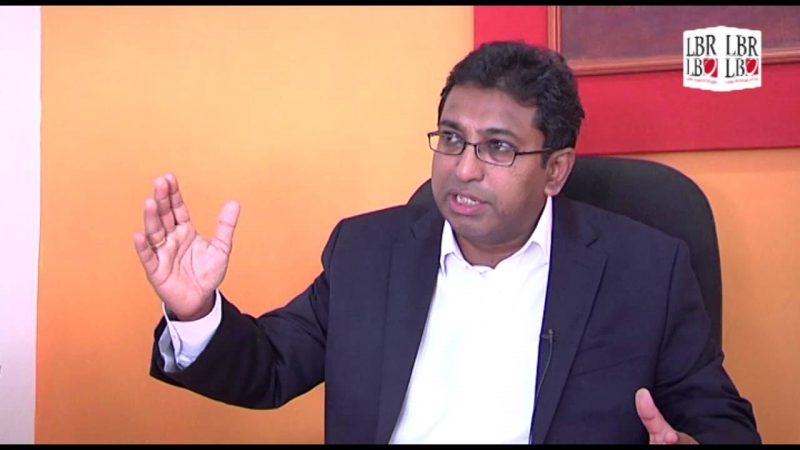In a scathing indictment of Sri Lanka's governance landscape, the International Monetary Fund (IMF) has handed down a damning verdict. MP Harsha de Silva, speaking at Wednesday's parliament session, highlighted the gravity of the situation as he discussed the contents of the IMF's Governance Diagnostic Assessment report.
Verdict is clear: corruption has permeated every level of Government institutions, from top to bottom.
Harsha de Silva minced no words as he shared the IMF's concerns, which include a multitude of pressing issues.
One of the primary reasons for the delay in disbursing the second tranche of funds is the shortfall in government revenue, as well as the sluggish progress in foreign debt restructuring.
However, perhaps the most significant roadblock to financial recovery lies in the Government's persistent failure to address its deep-rooted corruption problem.
In a rare moment of candid self-reflection, de Silva urged the Sri Lankan Government to swallow the bitter medicine it so desperately needs. With a history of approaching the IMF for assistance a staggering 16 times without lasting success, he argued that now is the time for comprehensive reform.
The Government must seize this opportunity to cleanse its system of corruption and pave the way for meaningful change.
The IMF has laid out a rigorous 16-point plan, a blueprint for Sri Lanka's revival. These directives, while formidable in scope, are essential steps towards transparency and accountability. They include:
Establishing an Advisory Committee by November 2023 to nominate commissioners for the Commission to Investigate Allegations of Bribery or Corruption (CIABOC).
(Harsha de Silva: "This committee will ensure that the nominations for key anticorruption positions are not influenced by political interests, which is a critical step in tackling corruption.")
Publishing asset declarations for senior officials by July 2024, an act that brings much-needed transparency, with only 12 out of 225 MPs having disclosed their assets.
(Harsha de Silva: "This move will shed light on potential conflicts of interest among top government officials, promoting accountability and integrity.")
Enacting Proceeds of Crime legislation by April 2024 to align with international standards, combating money laundering and illicit financial activities.
Amending the National Audit Act to hold officials accountable for the use of public resources.
Finalizing and implementing regulations for beneficial ownership information and creating a public registry by April 2024.
Enacting a Public Procurement Law by December 2024, addressing the alarming procurement and corruption issues.
(Harsha de Silva: "It is quite evident the failure in procurement and corruption with the mess that's going on in the Ministry of Health with emergency procurement but yet no action was taken.")
Publishing reports on increasing competitive tendered procurement contracts, targeting agencies with low levels of competition.
Requiring the publication of all public procurement contracts above LK 1 billion and other critical financial information on a designated website.
Implementing the State-Owned Enterprise Reform Policy to ensure ethical management.
Abolishing or suspending the Strategic Development Projects Office Act until a transparent process for evaluating proposals is established.
(Harsha de Silva: "If one may recall what happened at COPF not too long ago, when a tax holiday was given to one company for 17 years, I asked only one question, what is the benefit or revenue generated to the government? But they were unable to answer that; they took me away as Chair of COPF. Now it is being made necessary by the IMF to display the cost of such tax holidays.")
Amending tax legislation to prevent unilateral tax changes without parliamentary approval.
(Harsha de Silva: "We can recall the sugar scam, where midnight gazettes were used by the Minister to benefit certain people, and the government encountered a loss of 16 billion but nothing was done yet again.
")
Implementing short-term anti-corruption measures within revenue departments to enhance oversight and sanctions.
(Harsha de Silva: "These incidents are taking place under political influence with no accountability.")
Exploring options for new management arrangements for the Employee Provident Fund to avoid conflicts of interest.
(Harsha de Silva: "It is vital that we take the EPF management out of the central bank to avoid conflict of interests in the future, similar to what we witnessed with the Domestic-Debt Optimization.")
Revising legislation, regulations, and processes for stronger oversight in the banking sector.
(Harsha de Silva: "State banks are subjected to heavy politicization, as we have seen the substantial amounts of non-performing loans held by the banks")
Establishing an online digital land registry and ensuring progress in registering/titling-state land.
(Harsha de Silva: "Investors will not come if the current way continues, as land deeds are at one place while the survey plan is elsewhere and you need to bribe officals to get something done; thus, the IMF has urged this.
")
Expanding the resources and skills available to the Judicial Services Commission to strengthen justice.
It is evident that these directives are not an imposition but rather a lifeline for Sri Lanka. They promise to bolster transparency, root out corruption, and ensure that the government is held accountable for its actions. The IMF's involvement guarantees that these measures will be implemented rigorously, leaving no room for evasion or negligence.
The gravity of the situation is starkly clear. Sri Lankan citizens are struggling to make ends meet while corruption remains unchecked. Professionals are fleeing the country, and the public's trust in the government is eroding. The IMF's intervention is not a burden but a beacon of hope.
The ball is now in the court of Ranil Wickramasinghe and his SLPP government. Opposition to these measures is not an option, as they represent the only viable path forward. The IMF's directives are a lifeline, an opportunity for Sri Lanka to cleanse its system, regain trust, and pave the way for a brighter future.

